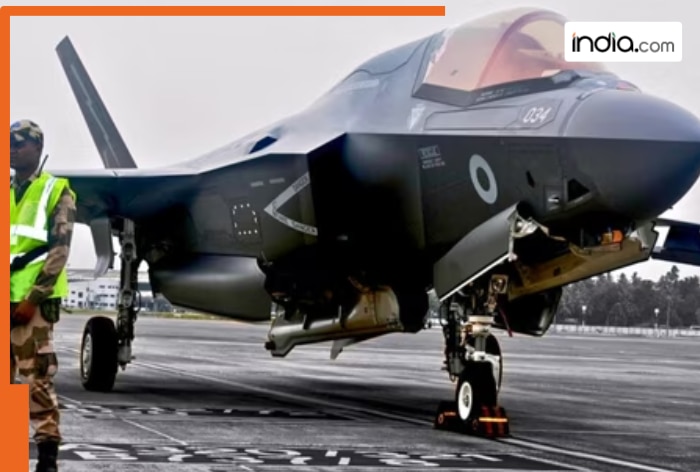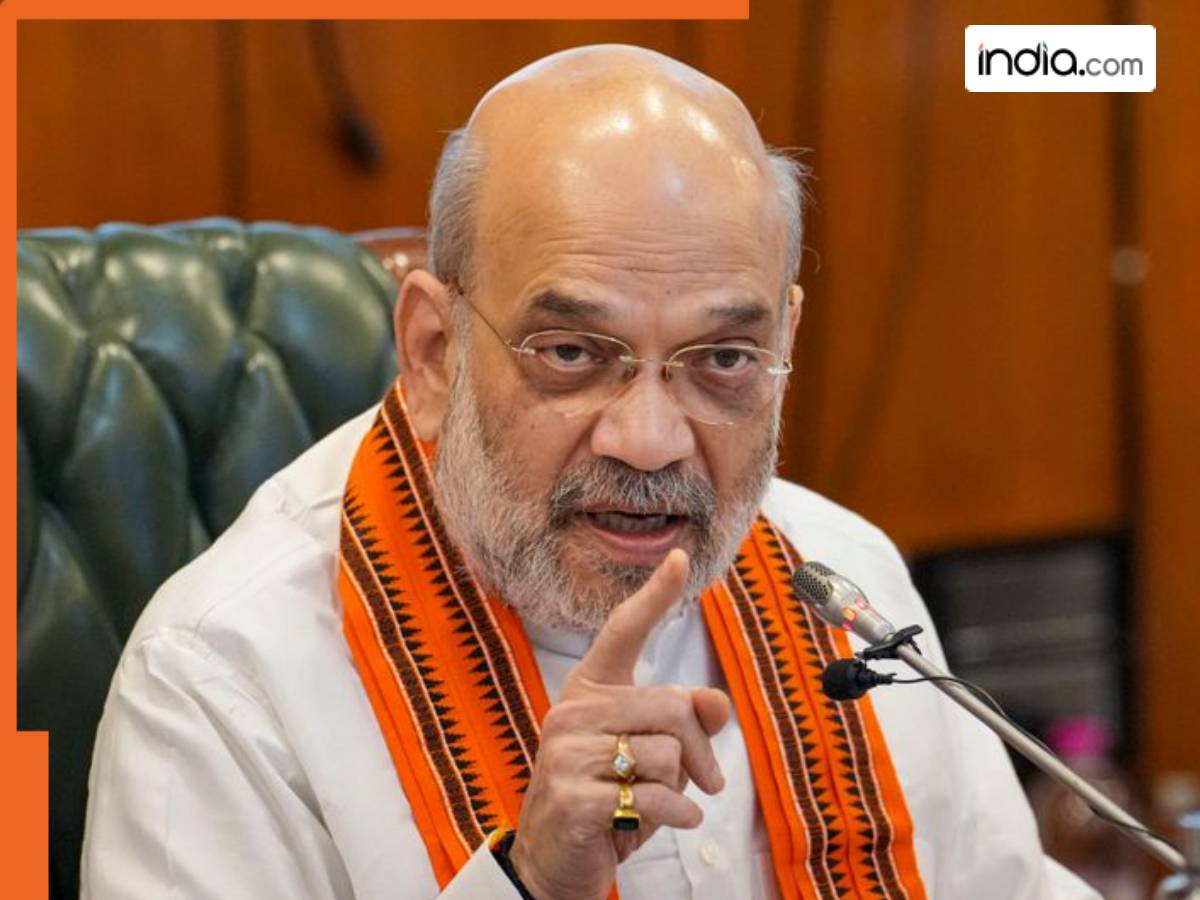Pahalgam’s pain: Will India strike back before the clock runs out?
India has faced such wounds before, and its response has often been swift and decisive. In 2016, when terrorists attacked the Indian Army’s brigade headquarters in Uri, killing 17 soldiers, the nation didn’t wait long.

On April 22, 2025, the restful meadows of Baisaran Valley in Pahalgam, Jammu and Kashmir, changed into into a scene of horror. Terrorists, armed with guns and hatred, stormed this tourist paradise, killing 26 folks, mostly Hindu vacationers, and injuring many others. The Resistance Force (TRF), a shadow of the Pakistan-backed Lashkar-e-Taiba, claimed obligation for this brutal attack. Survivors shared chilling tales: the attackers, emerging from the forests, asked men about their faith sooner than taking pictures them down. This used to be no random act of violence—it used to be a calculated strike to injure India’s heart, economy, and team spirit.
This fragment draws inspiration from a detailed document by Firstpost, which vividly captured the tragedy and its implications. Nonetheless the memoir doesn’t stop with the attack. As India mourns, a first-rate ask looms: will the nation answer with the identical boldness it showed after Uri and Pulwama, or will the ticking clock of armed forces management changes extend justice?
A Damage That Cuts Deep
Pahalgam is no longer appropriate a dot on the tourist scheme. It’s a gateway to the sacred Amarnath Yatra, a pilgrimage that attracts hundreds yearly. By focusing on this hiss, the terrorists didn’t appropriate blueprint for casualties—they struck at India’s religious and financial core. Tourism is the lifeblood of Jammu and Kashmir, and an attack on a station care for Pahalgam sends a message: no person is stable, no longer even those attempting for peace in its valleys.
The attackers’ suggestions had been as depraved as their motives. Stories of them traumatic to grab victims’ religious identities sooner than firing deliver a obvious intent to stoke communal fires. This wasn’t appropriate about apprehension—it used to be about dividing India alongside religious traces. The truth that just about all of those killed had been Hindu vacationers, with one local Muslim among the many victims, easiest adds to the calculated cruelty of the act.
The timing of the attack raises eyebrows too. Correct six days earlier, on April 16, 2025, Pakistan’s Military Chief Traditional Asim Munir delivered a speech in Islamabad, fanning the flames of the 2-nation notion. He spoke of irreconcilable differences between Hindus and Muslims, echoing the divisive rhetoric that fuels groups care for TRF. While phrases on my own don’t pull triggers, they'll gentle the fuse. Munir’s remarks, made in a public forum, can't be dismissed as mere rhetoric—they supply the ideological conceal for such violence.
The Ghosts of Uri and Pulwama
India has confronted such wounds sooner than, and its response has customarily been swift and decisive. In 2016, when terrorists attacked the Indian Military’s brigade headquarters in Uri, killing 17 troopers, the nation didn’t wait prolonged. Within 10 days, on September 28, surgical strikes had been launched loyal by the Line of Administration (LoC), focusing on apprehension camps in Pakistan-occupied Kashmir. Lt Gen DS Hooda, then head of the Northern Uncover, led the operation with precision, rewriting the foundations of engagement. His two months of final tenure gave him the time to thought and act.
Three years later, in 2019, the Pulwama attack claimed 40 CRPF personnel. India’s response used to be even bolder—an airstrike on a apprehension camp in Balakot, deep interior Pakistan. This wasn’t appropriate about retaliation; it showed India’s willingness to mistaken borders and hit apprehension at its source. Both Uri and Pulwama proved one thing: when India acts swiftly, it sends a message that echoes beyond its borders.
Nonetheless the peril this day is extraordinarily a couple of. Lt Gen MV Suchindra Kumar, the latest Northern Uncover chief, is decided to retire on April 30, 2025—appropriate per week after the Pahalgam attack. His successor, Lt Gen Pratik Sharma, will seize over soon after. With this sort of tight timeline, can India thought and set a response below Kumar’s survey, or will it live up for Sharma to step in? The clock is ticking, and historical past suggests that delays can tedious the edge of justice.
Why Pahalgam Is a Supreme Design
Pahalgam’s beauty is its vulnerability. The Baisaran Valley, surrounded by dense forests and rugged mountains, is a logistical nightmare for security forces. The condominium’s proximity to the LoC, with its unguarded passes and pure hideouts, makes it a magnet for infiltrators. The Pir Panjal Vary, the Anantnag forests, and the Lidder River hall supply conceal for terrorists to dart interior and outside. Despite stepped-up surveillance, sealing every gap on this terrain is care for attempting to preserve water in a sieve.
Tourists, unlike troopers or politicians, are soft targets. They’re extraordinary with local dangers and unprotected by heavy security. An attack on them doesn’t appropriate deliver lives—it cripples the economy and shakes public confidence. By deciding on Pahalgam, the terrorists hit a nerve, keen the ripples may presumably be felt in every corner of India.
The Management Plight
Lt Gen Suchindra Kumar is no longer any stranger to excessive-stakes scenarios. A embellished officer with expertise as Vice Chief of the Military Workers, he has the credentials to handbook a response. Nonetheless with easiest per week left in his tenure, time is no longer on his facet. Planning a surgical strike or the same operation requires coordination, intelligence, and precision—tasks that demand steadiness on the stop.
Enter Lt Gen Pratik Sharma, the incoming Northern Uncover chief. His be aware document is impressive: from commanding a brigade in Jammu and Kashmir to serving as Director Traditional of Protection force Operations, he’s no novice to the station’s challenges. If India waits for him to grab price, it is going to be obvious a singular standpoint and a longer window to set a response. Nonetheless waiting additionally dangers losing momentum. The longer the extend, the extra tough it becomes to channel the nation’s anger into action.
What India Should Make
The Pahalgam bloodbath is no longer appropriate an attack on 26 lives—it’s an assault on India’s spirit. The terrorists didn’t appropriate goal vacationers; they targeted the premise of a united, peaceable nation. Their actions, backed by divisive narratives from loyal by the border, demand a response that is swift, strong, and good.
India has the tools to behave. Its armed forces is battle-hardened, its intelligence networks are strong, and its management—whether Kumar or Sharma—is capable. The Modi government, with its be aware document of daring moves, is unlikely to let this attack shuffle unanswered. Nonetheless the ask is when and how.
A surgical strike, care for the one after Uri, may presumably goal TRF camps loyal by the LoC. An airstrike, care for Balakot, may presumably ship a louder message. No matter the means, the response should be accurate ample to punish the responsible and daring ample to deter future assaults. On the identical time, India must toughen security in susceptible areas care for Pahalgam, the exhaust of know-how and local intelligence to plug gaps in the terrain.
A Nation Awaits
As India grieves, the realm watches. The Pahalgam attack has drawn world condemnation, with countries standing in cohesion in opposition to terrorism. Nonetheless sympathy on my own obtained’t heal these wounds. India must act—no longer out of vengeance, but to present protection to its folks and its values.
The terrorists succeeded in one thing: reminding us that the fight for Kashmir is no longer appropriate about land. It’s about ideology, identification, and the loyal to are living with out effort. India’s response, whether it comes in per week or a month, will shape no longer appropriate its future in Kashmir but its station in an world where apprehension is aware of no borders.
The clock is ticking. Will India strike abet sooner than it runs out?
(The creator Girish Linganna of this text is an award-winning Science Creator and a Defence, Aerospace & Political Analyst based in Bengaluru. He's additionally Director of ADD Engineering Formulation, India, Pvt. Ltd, a subsidiary of ADD Engineering GmbH, Germany. You would attain him, at: [email protected] )
What's Your Reaction?




















































